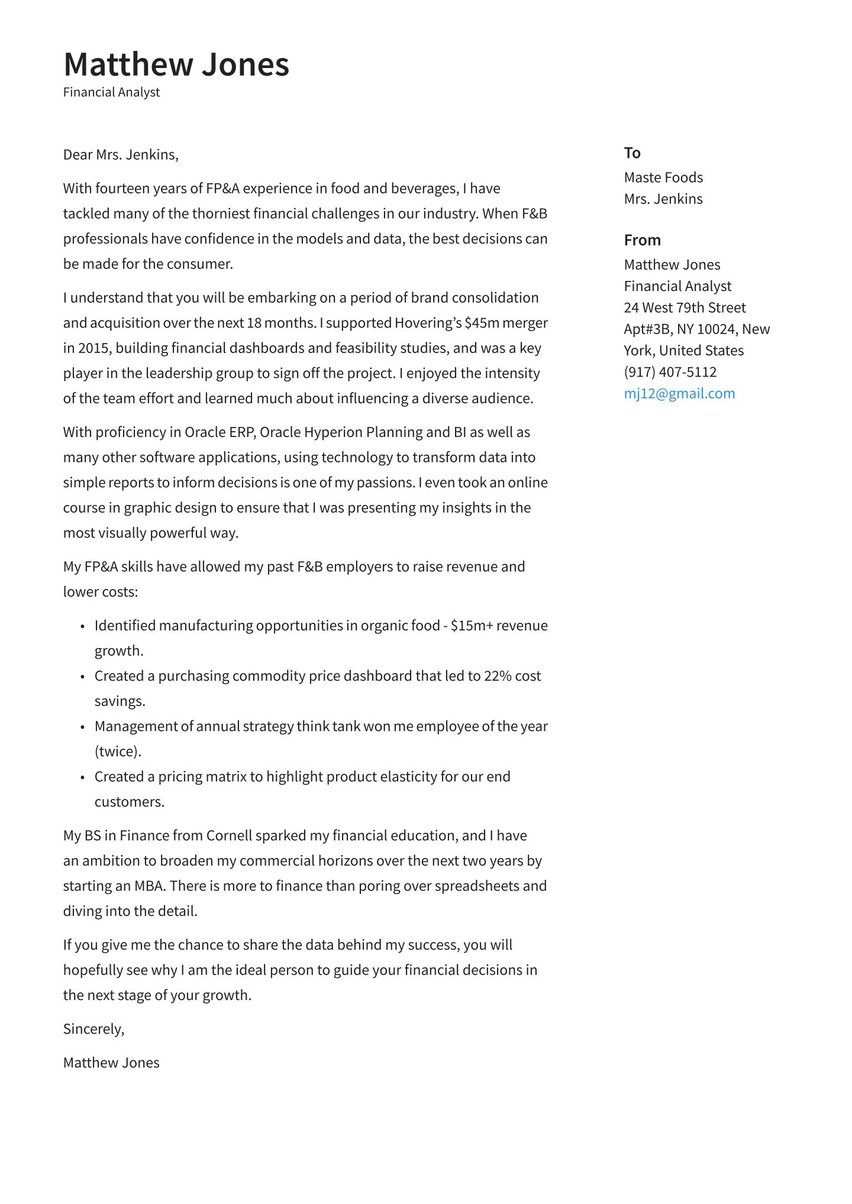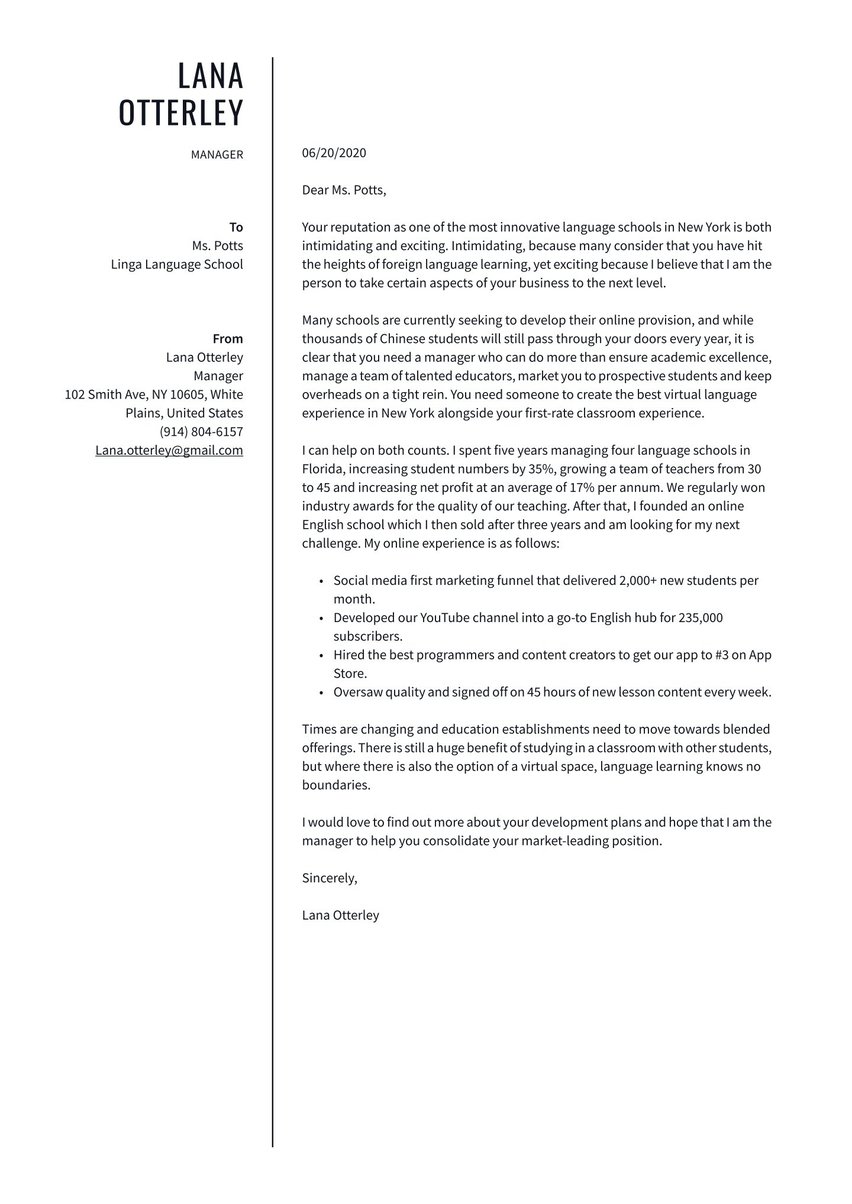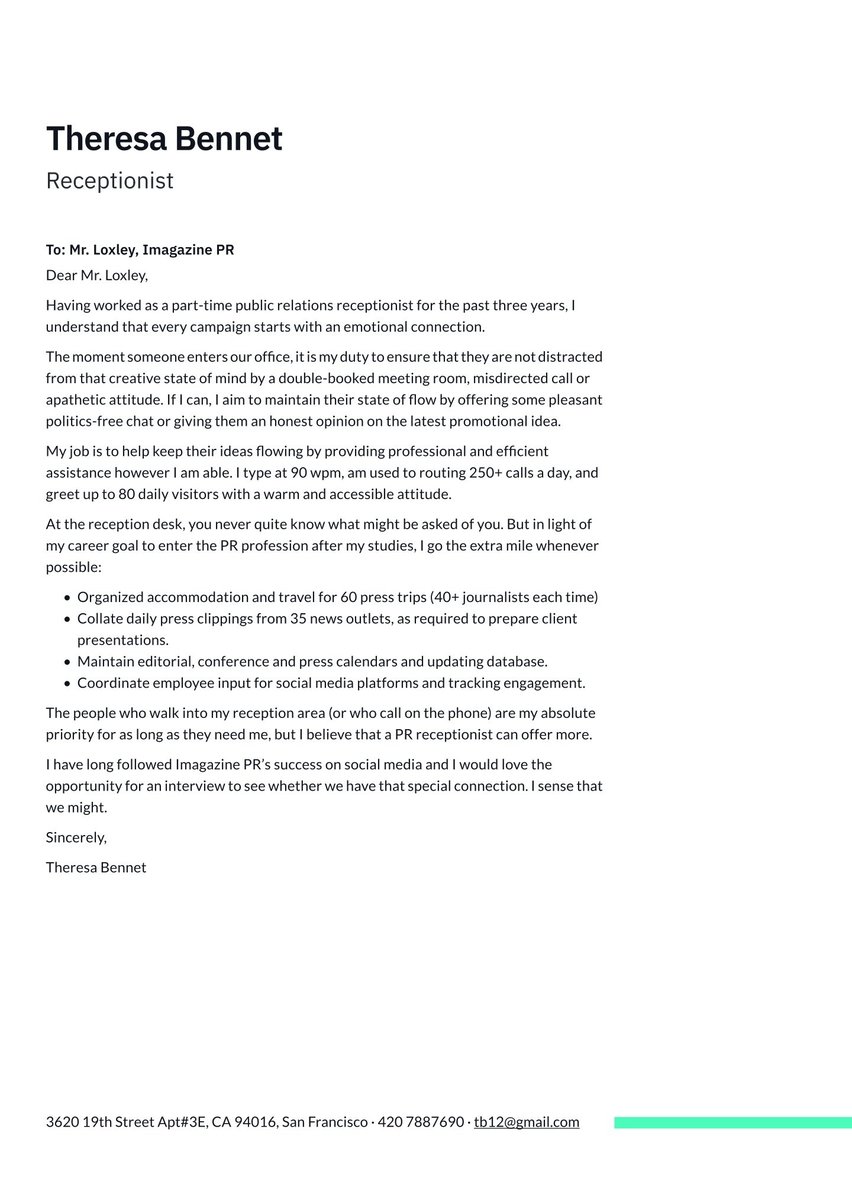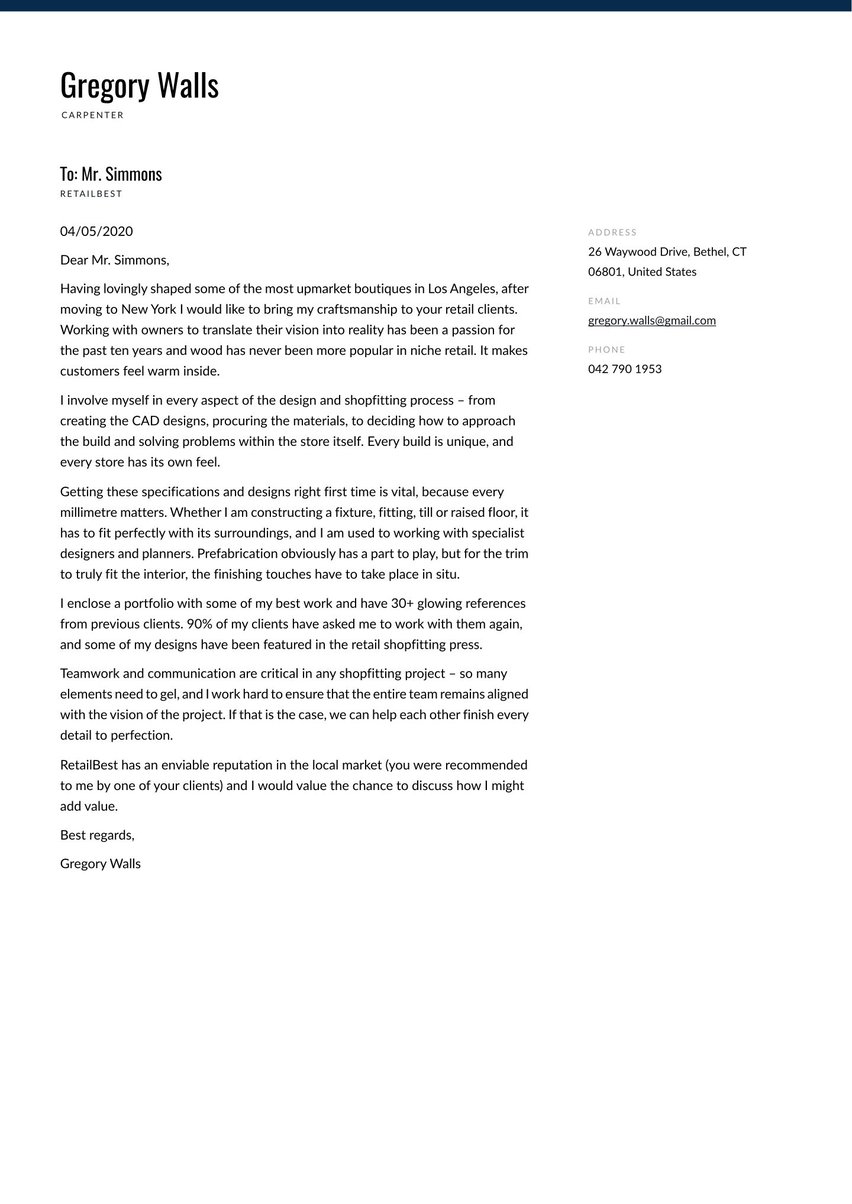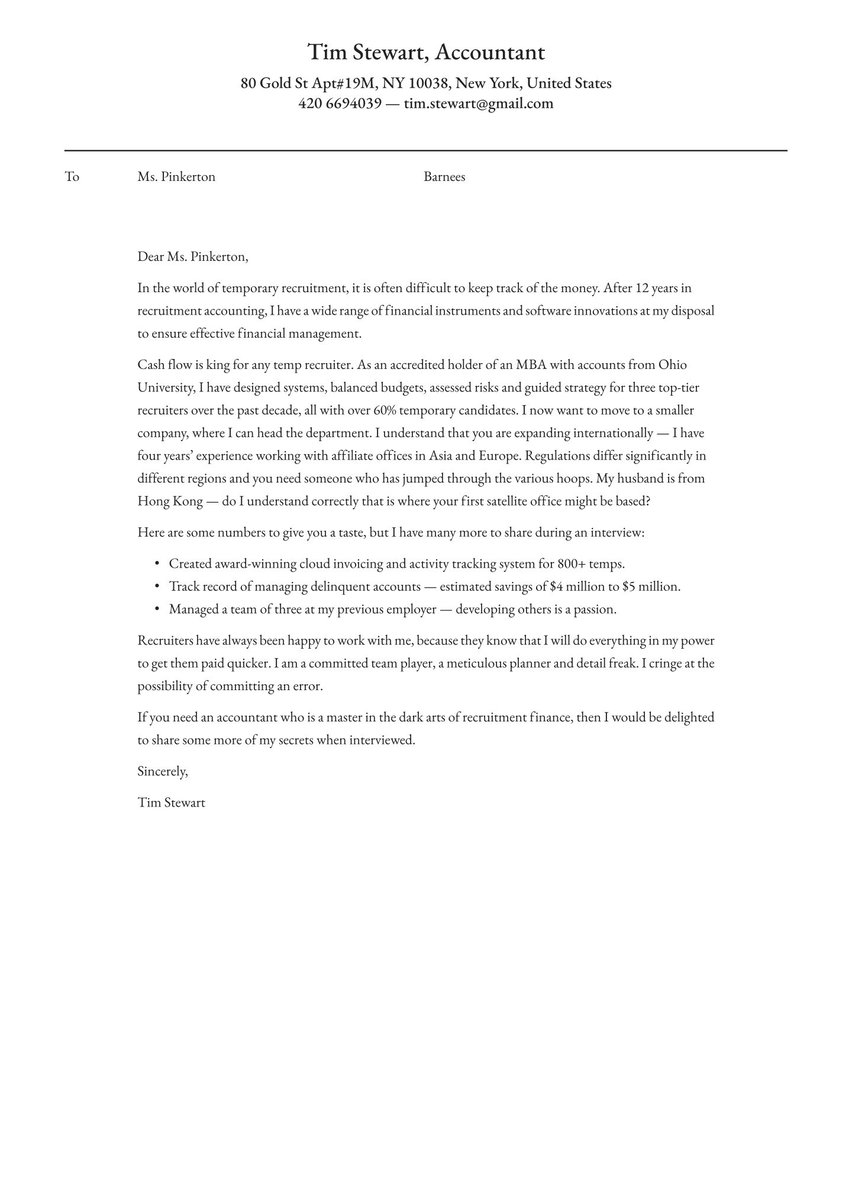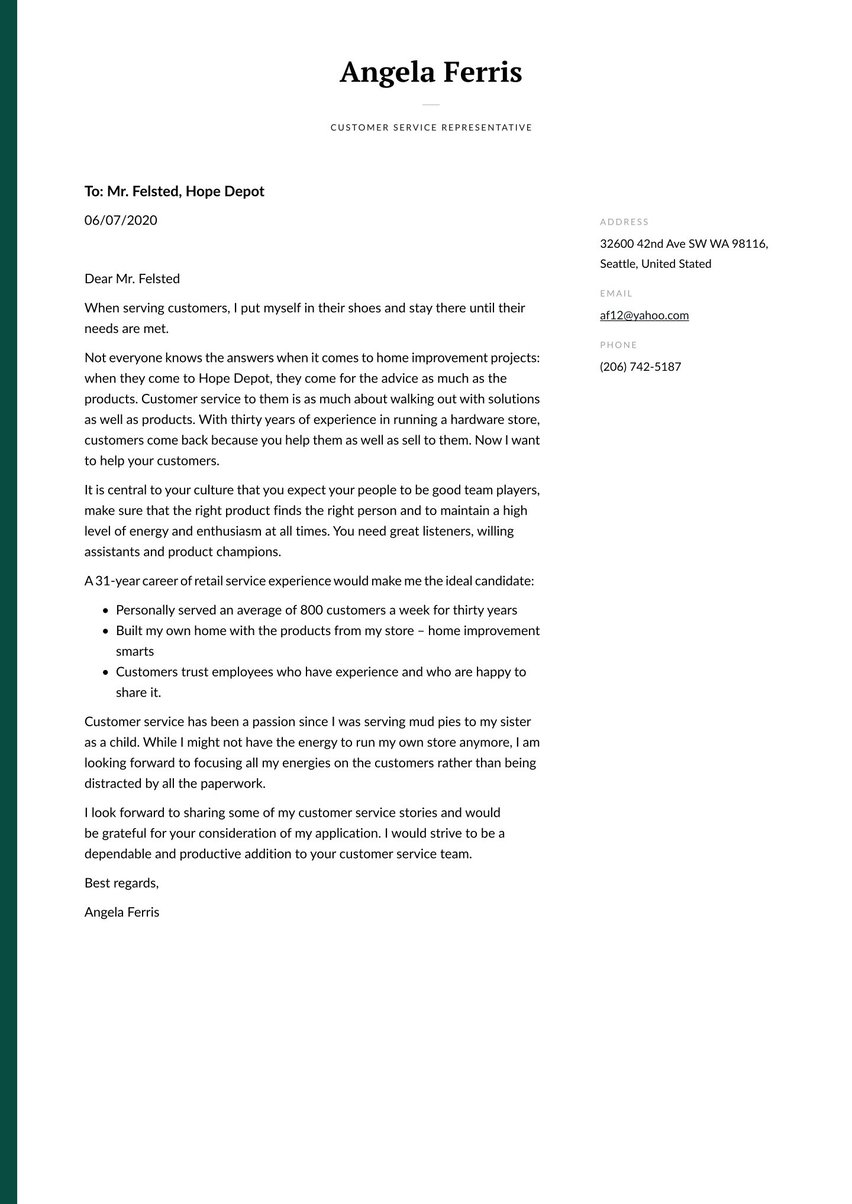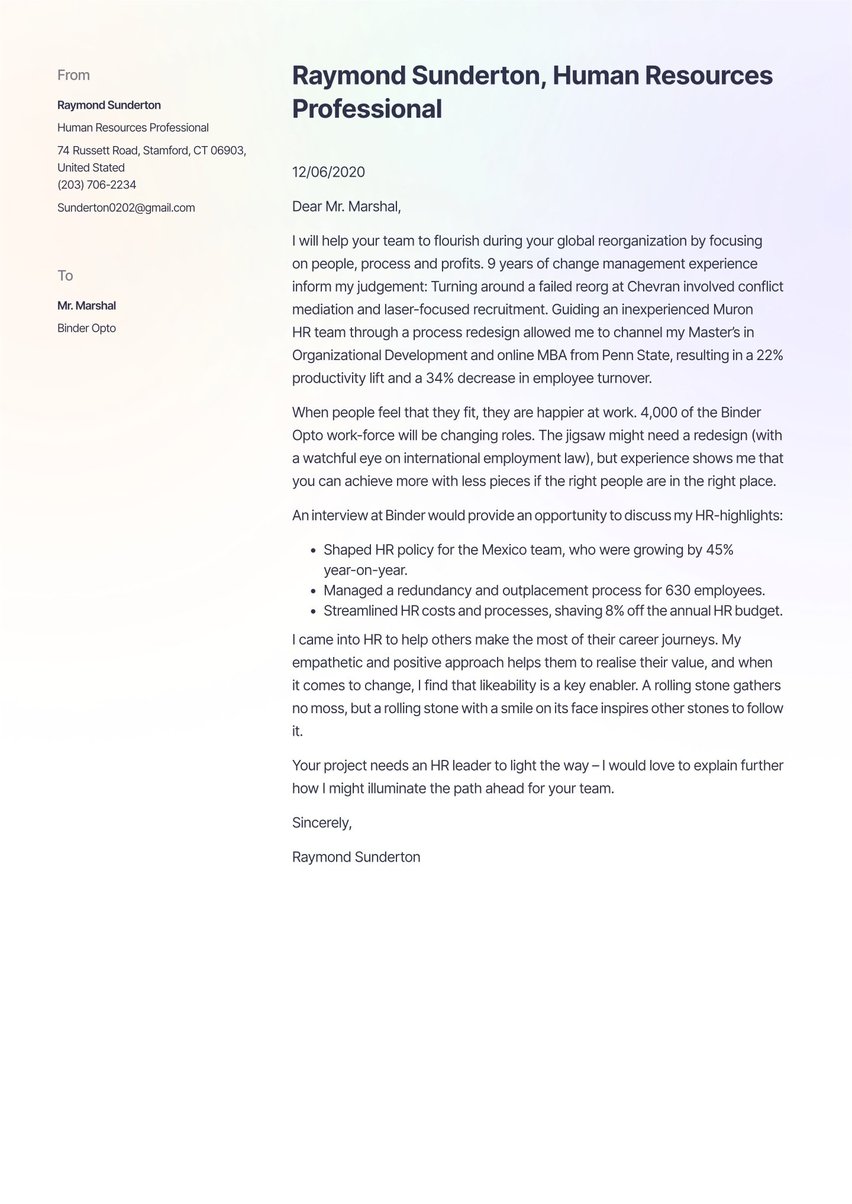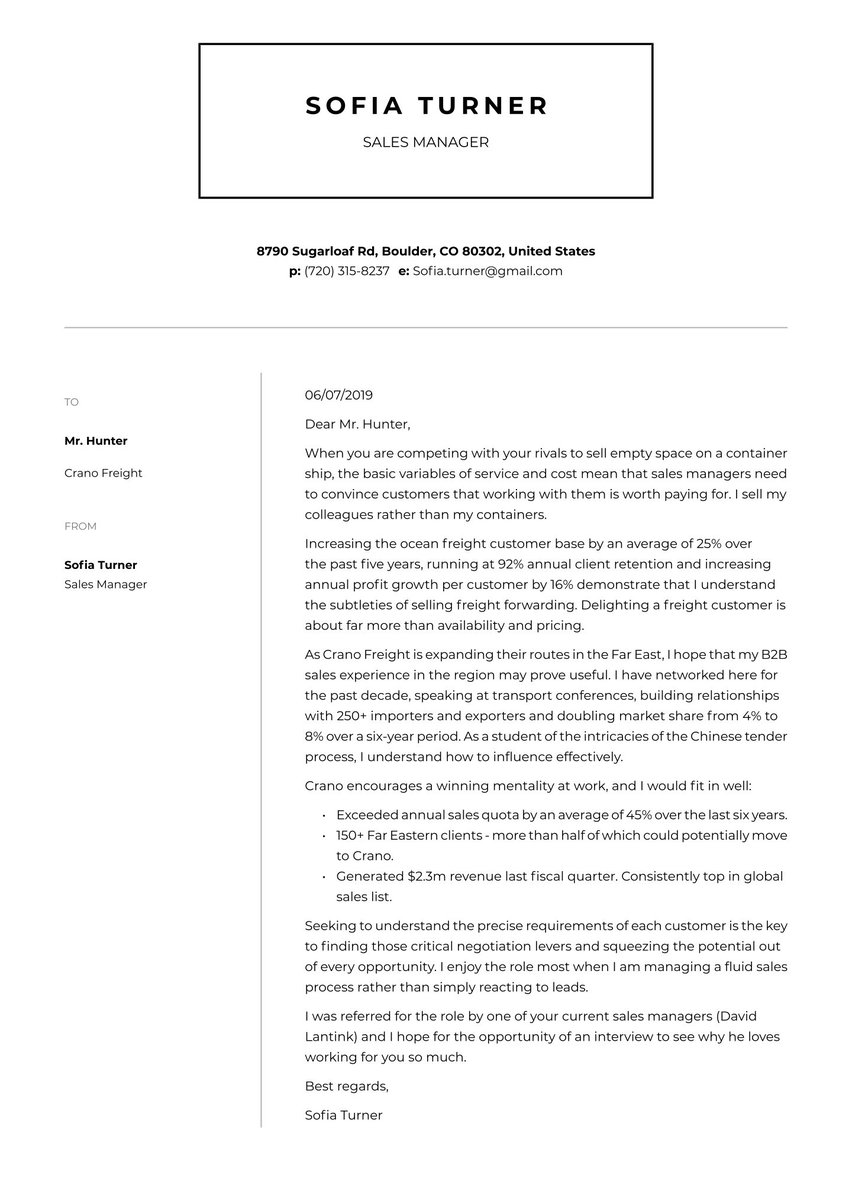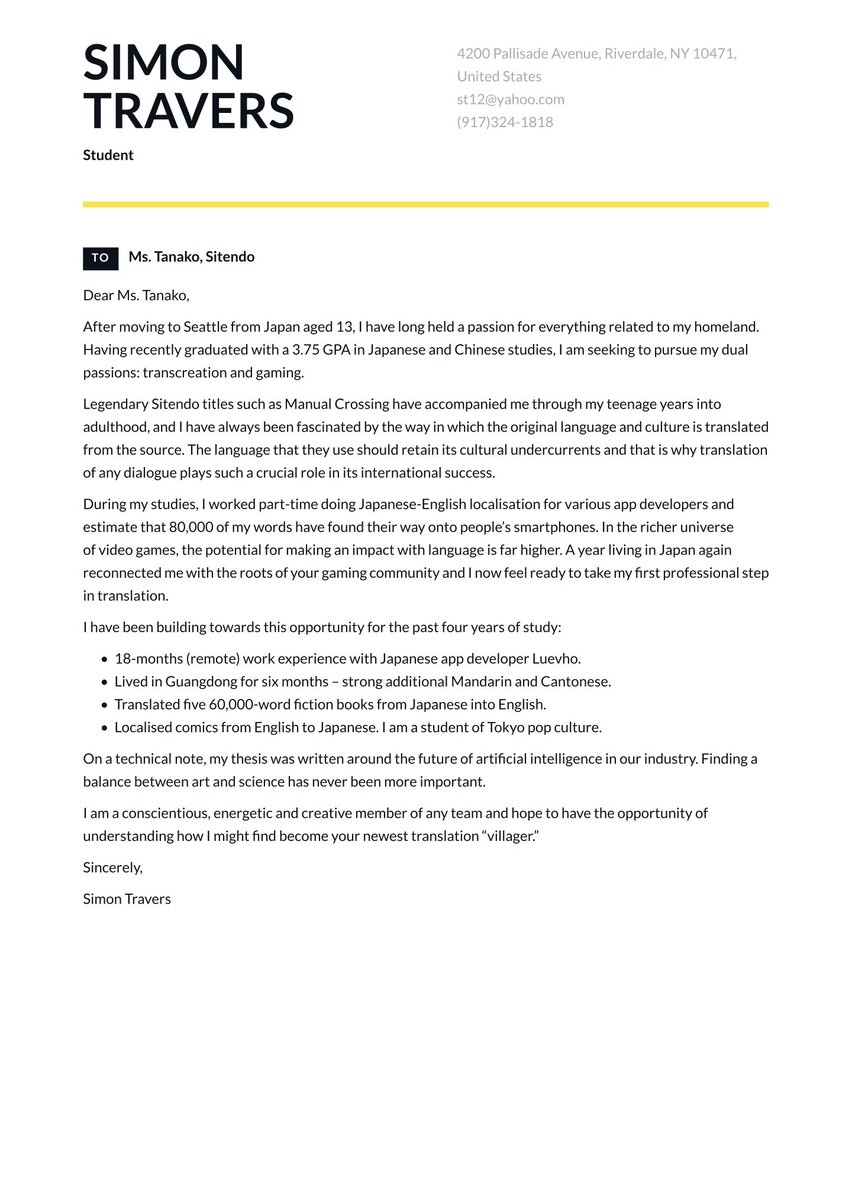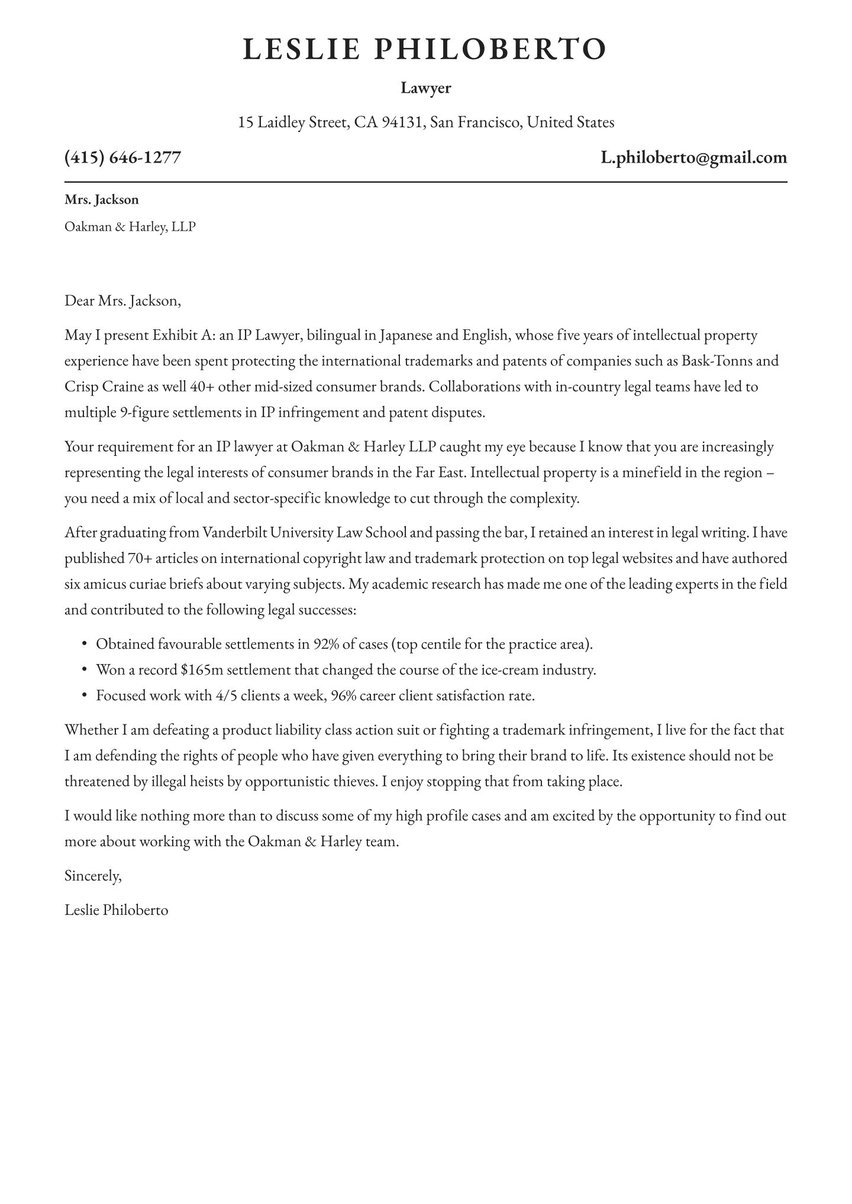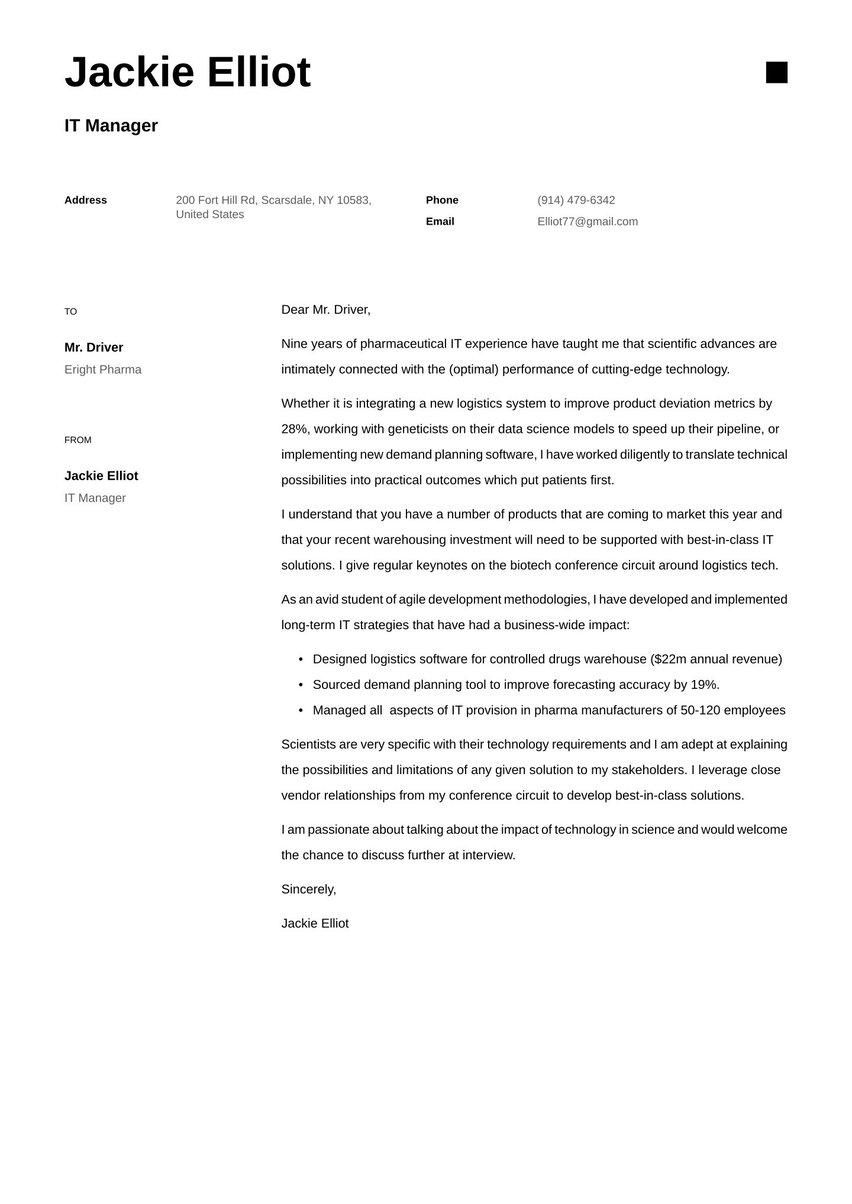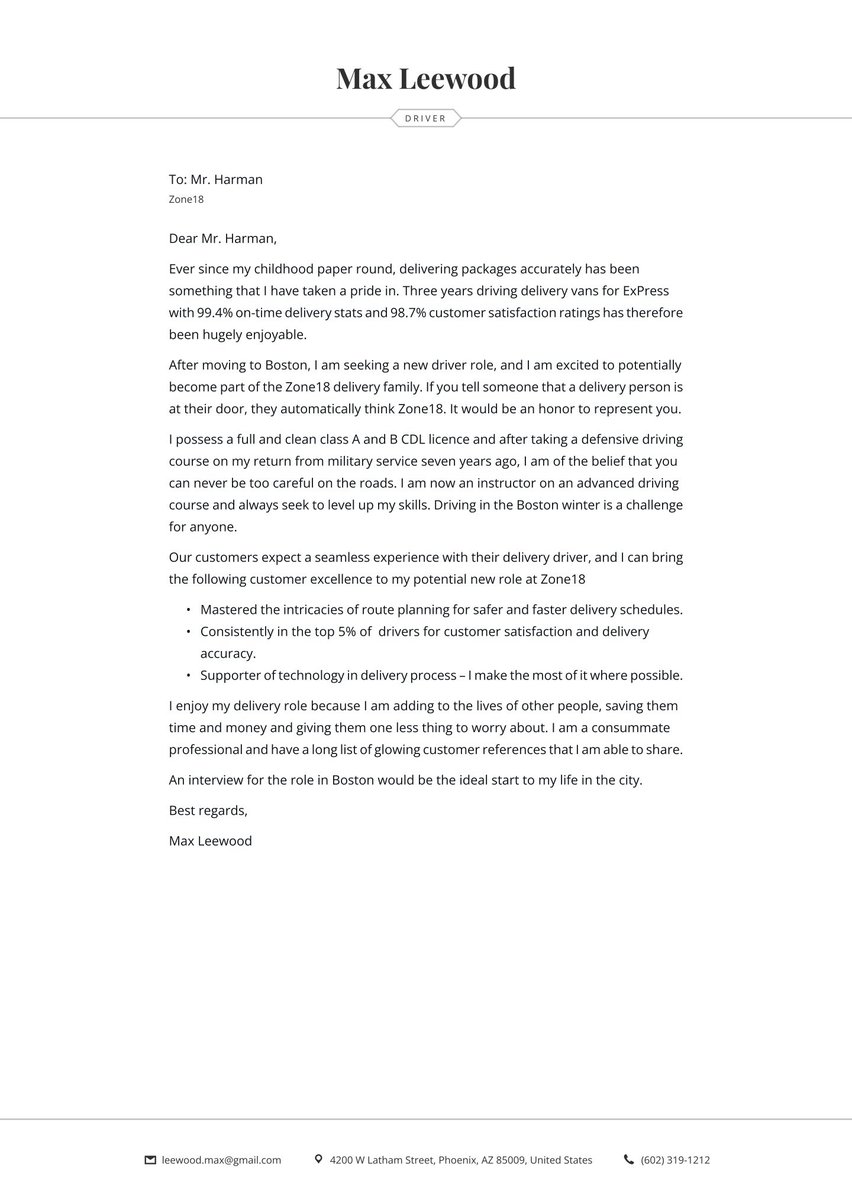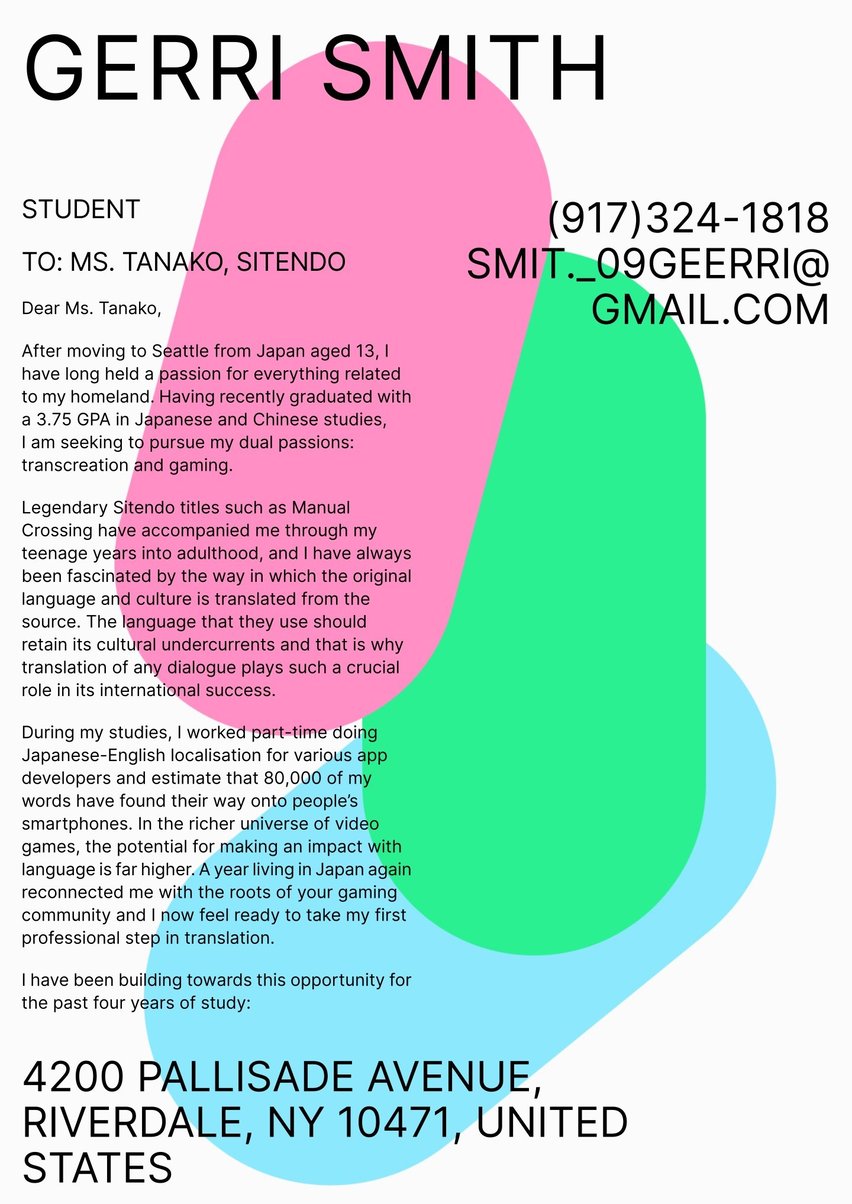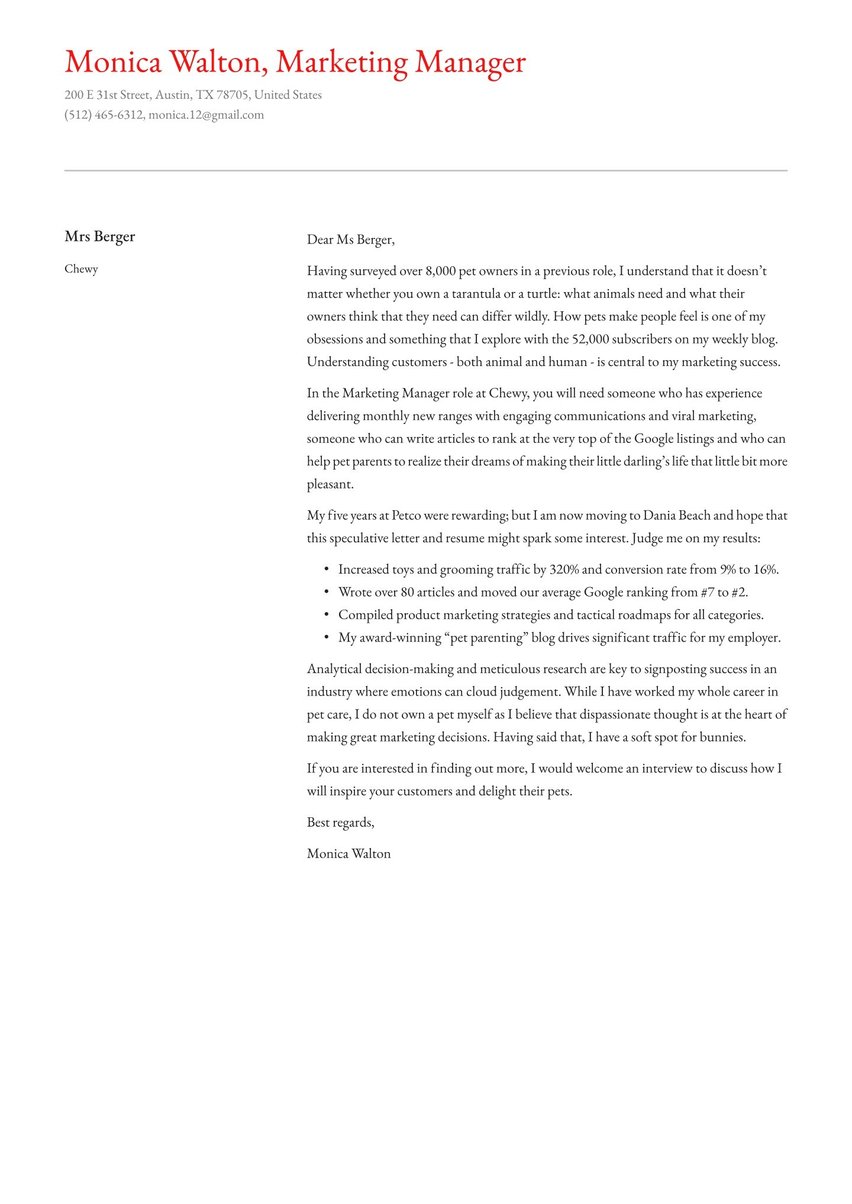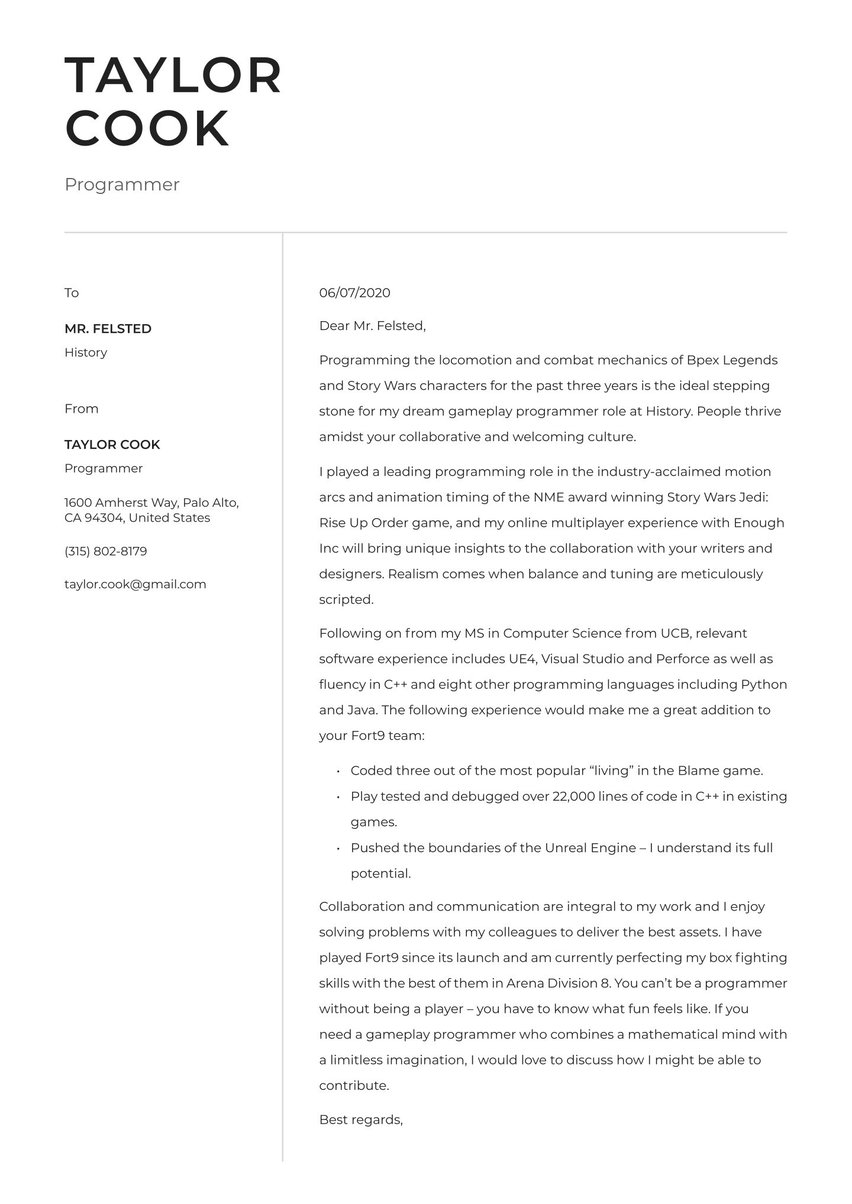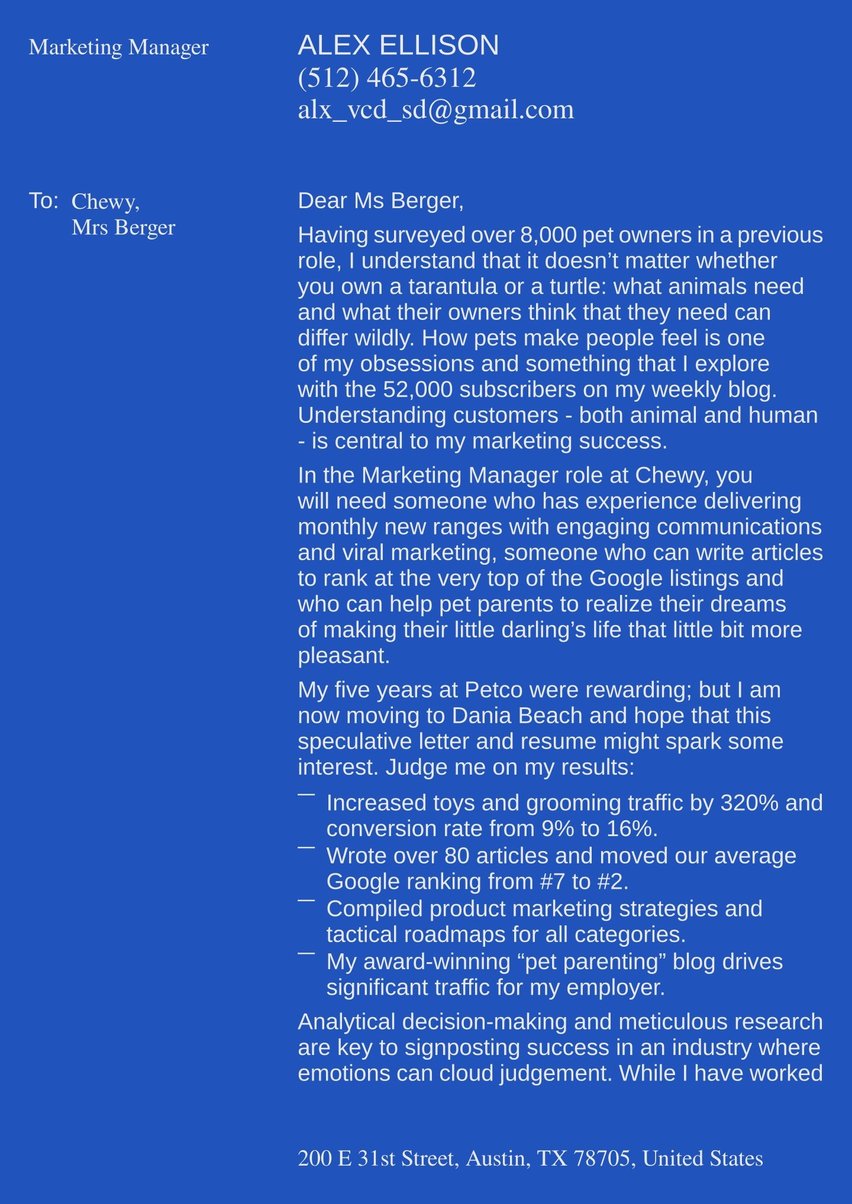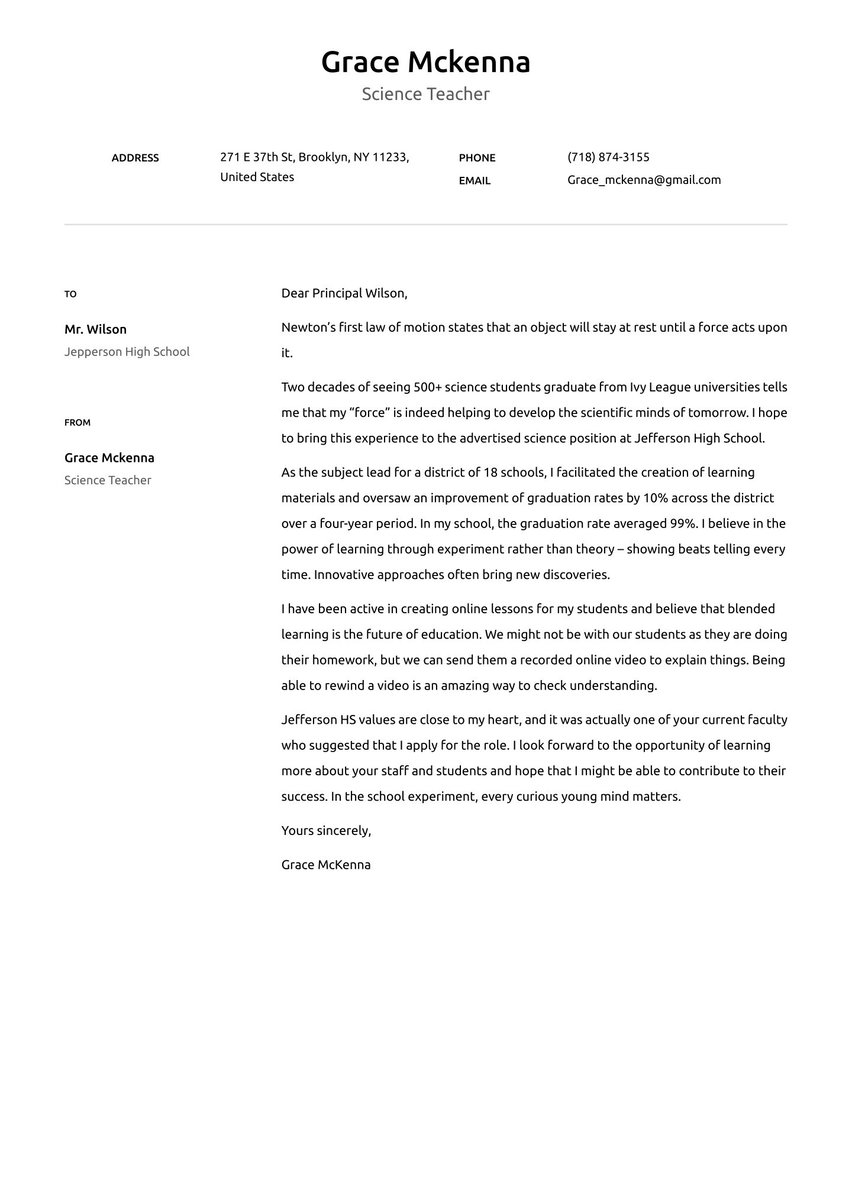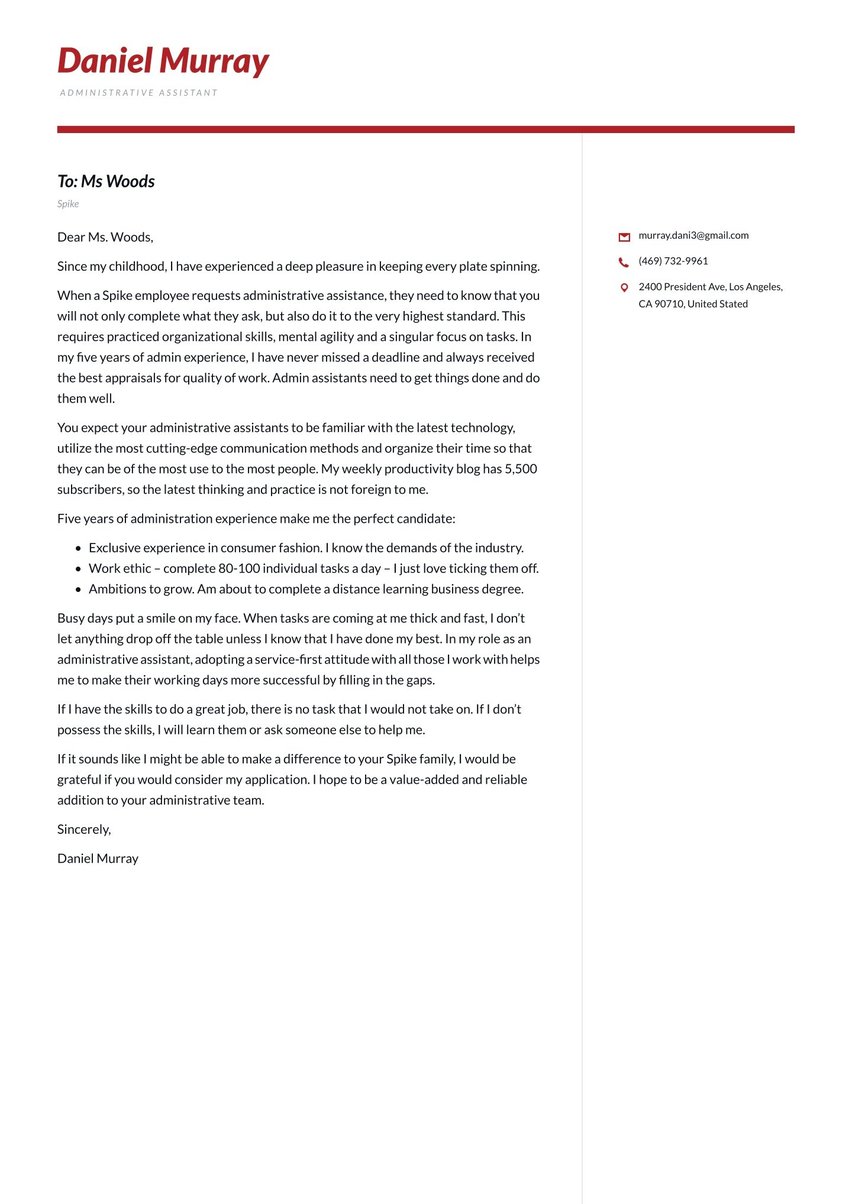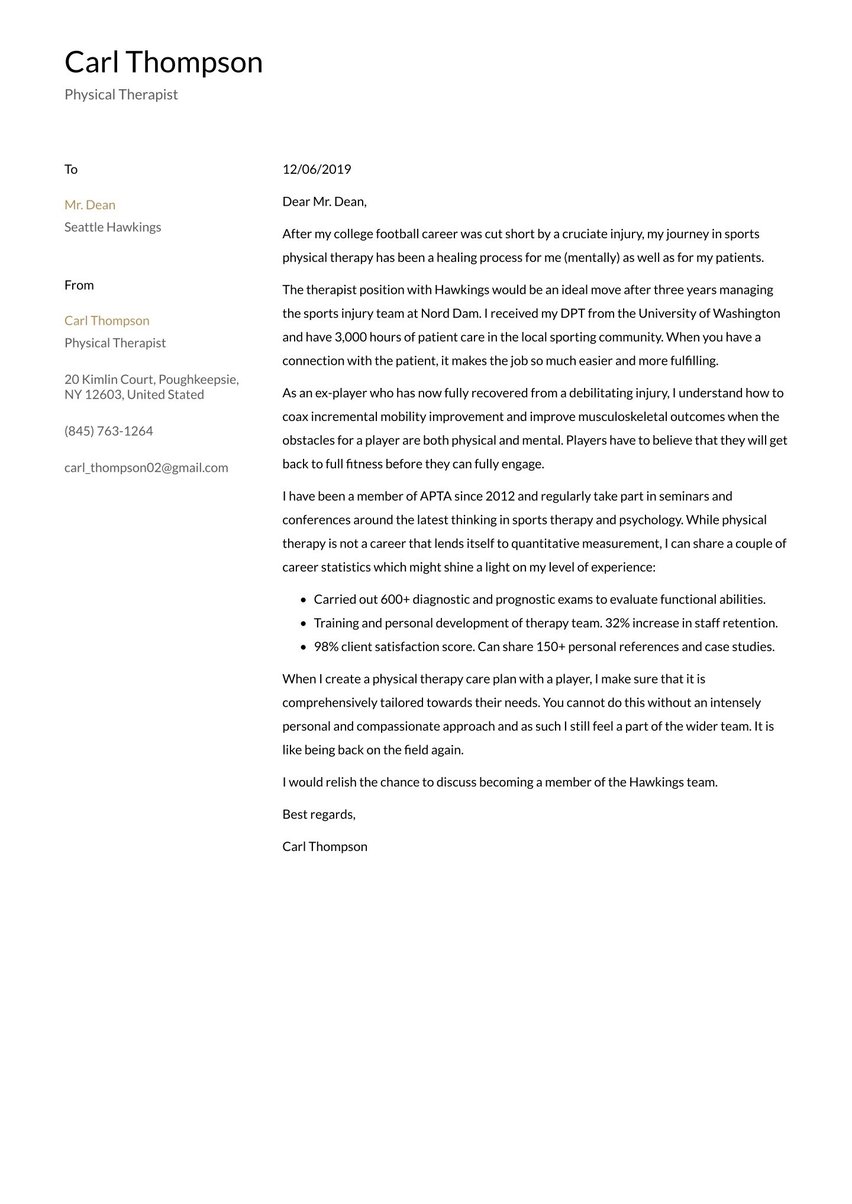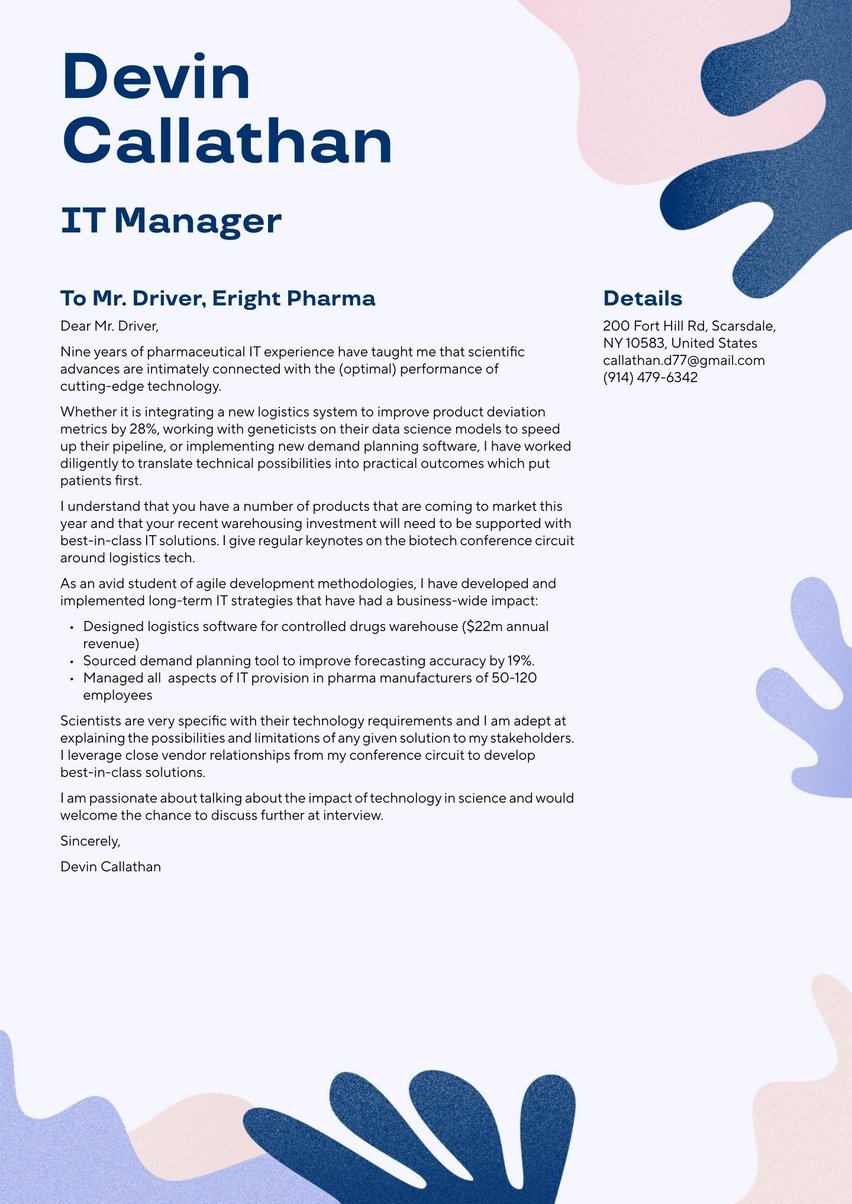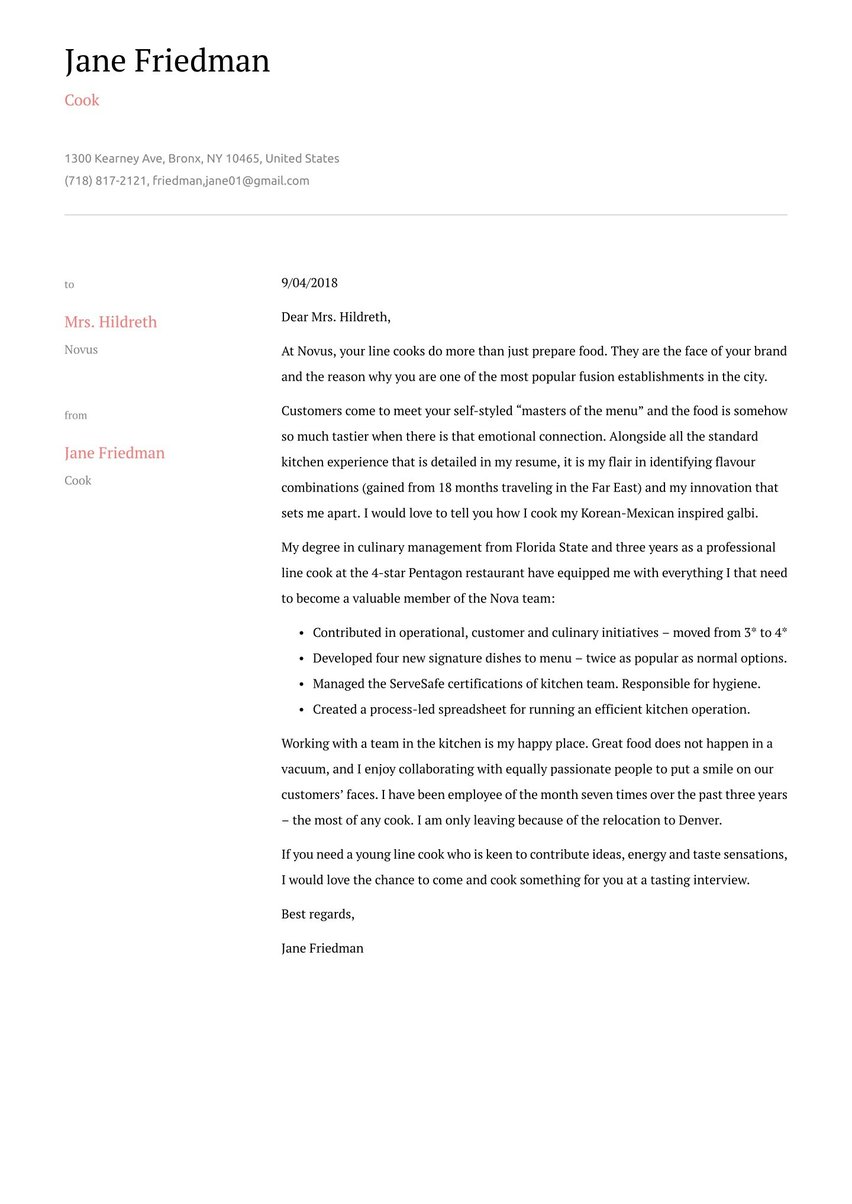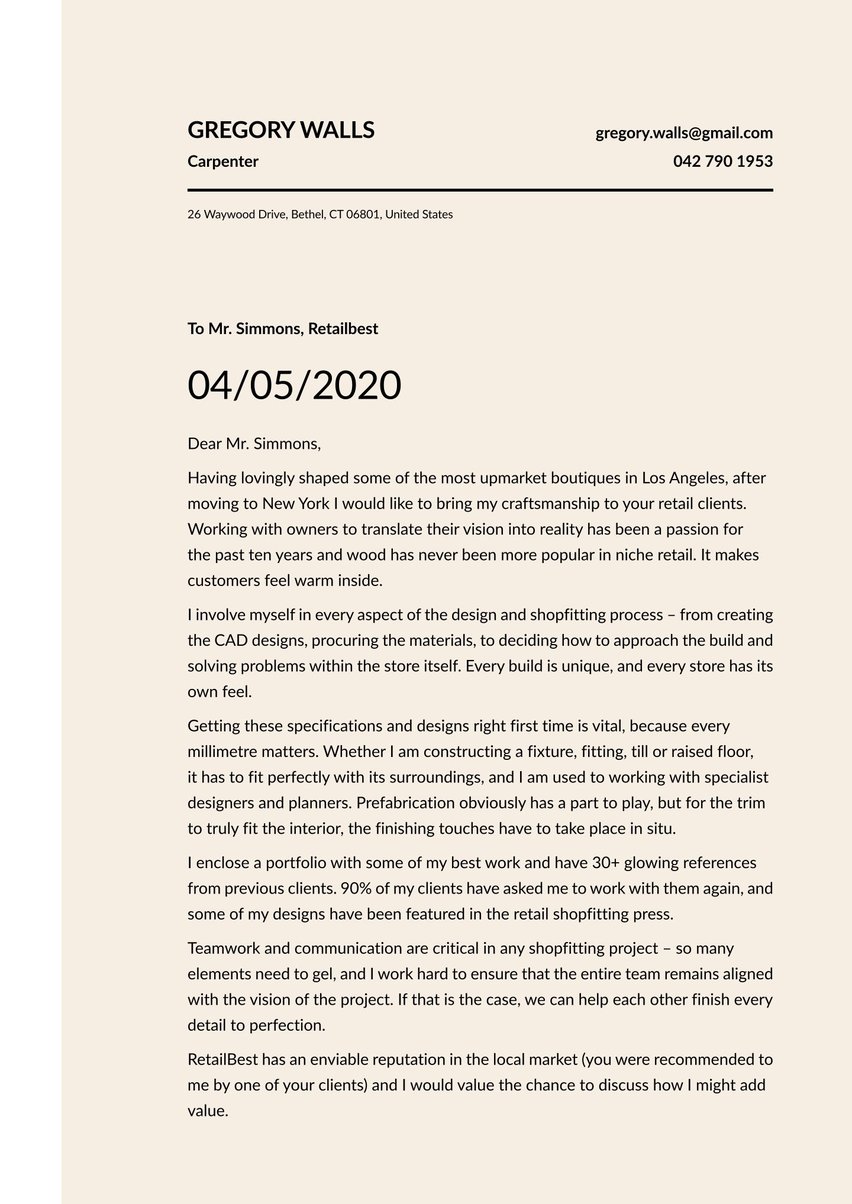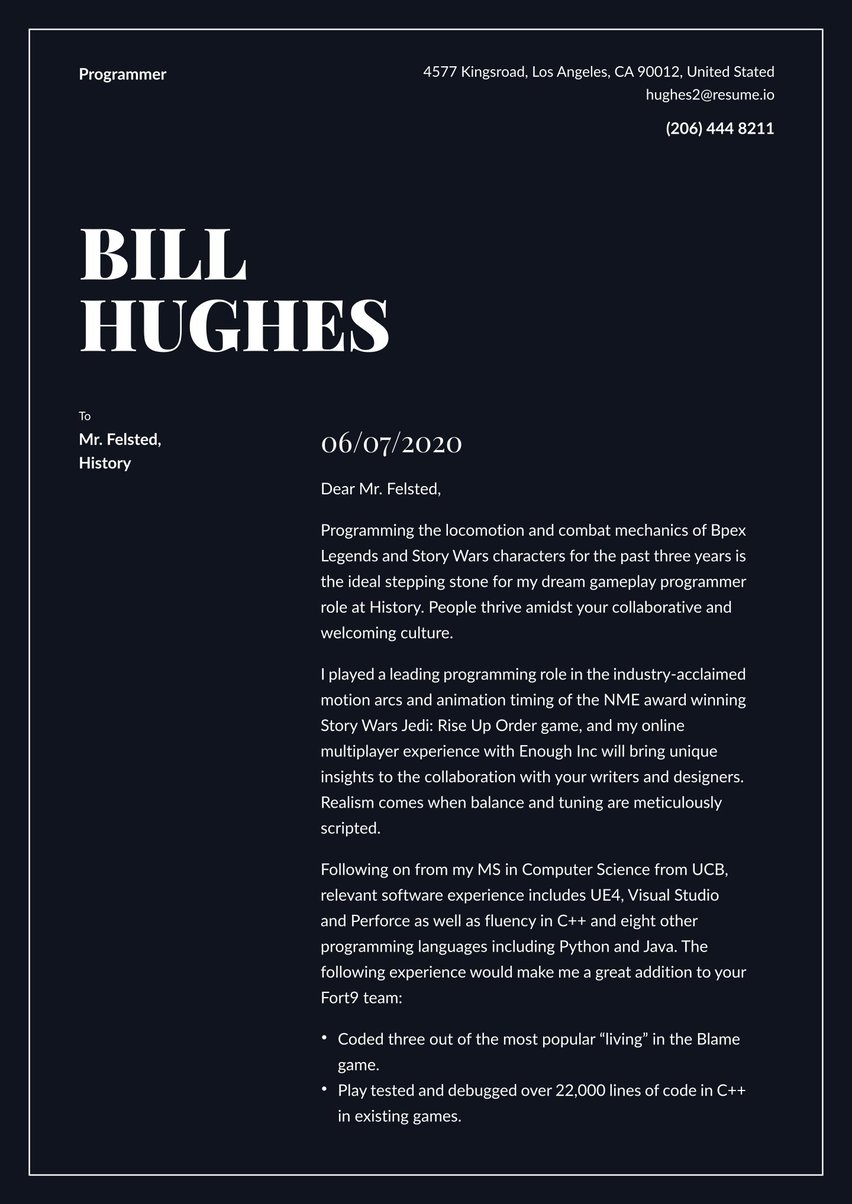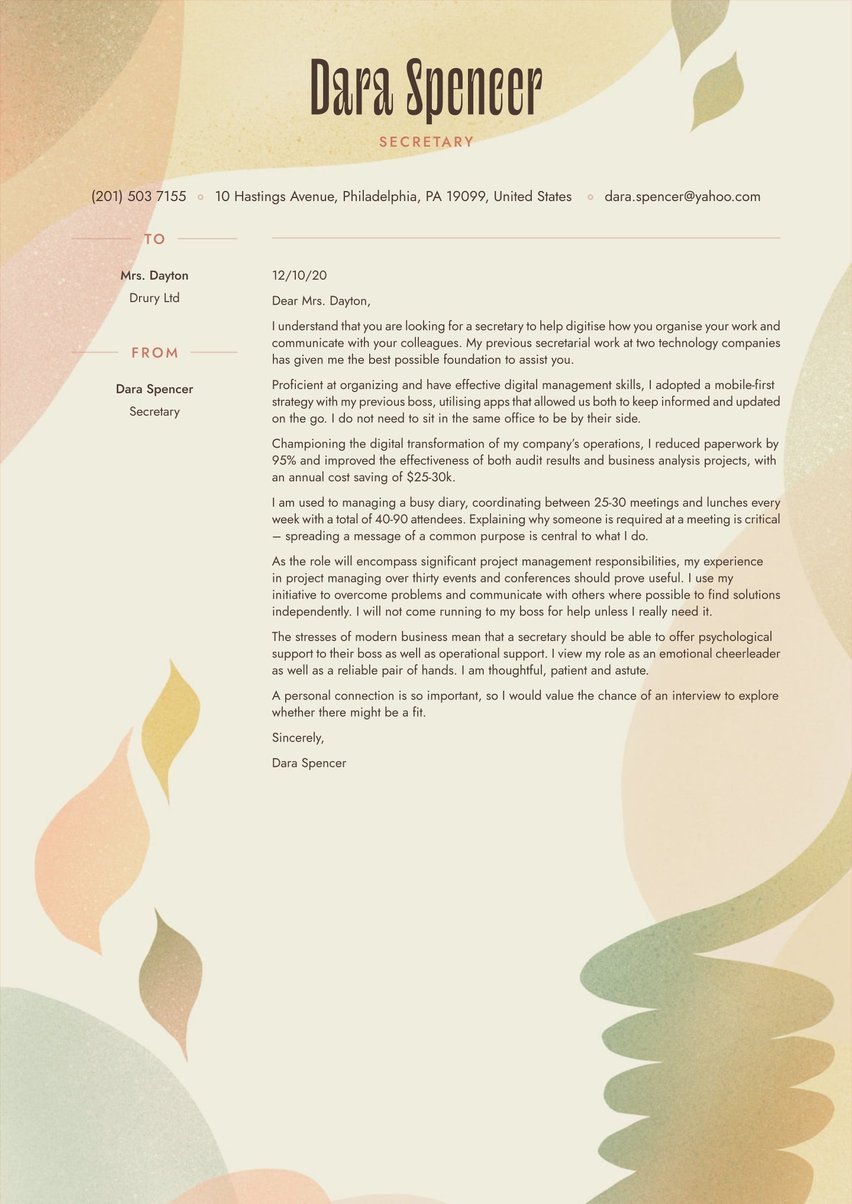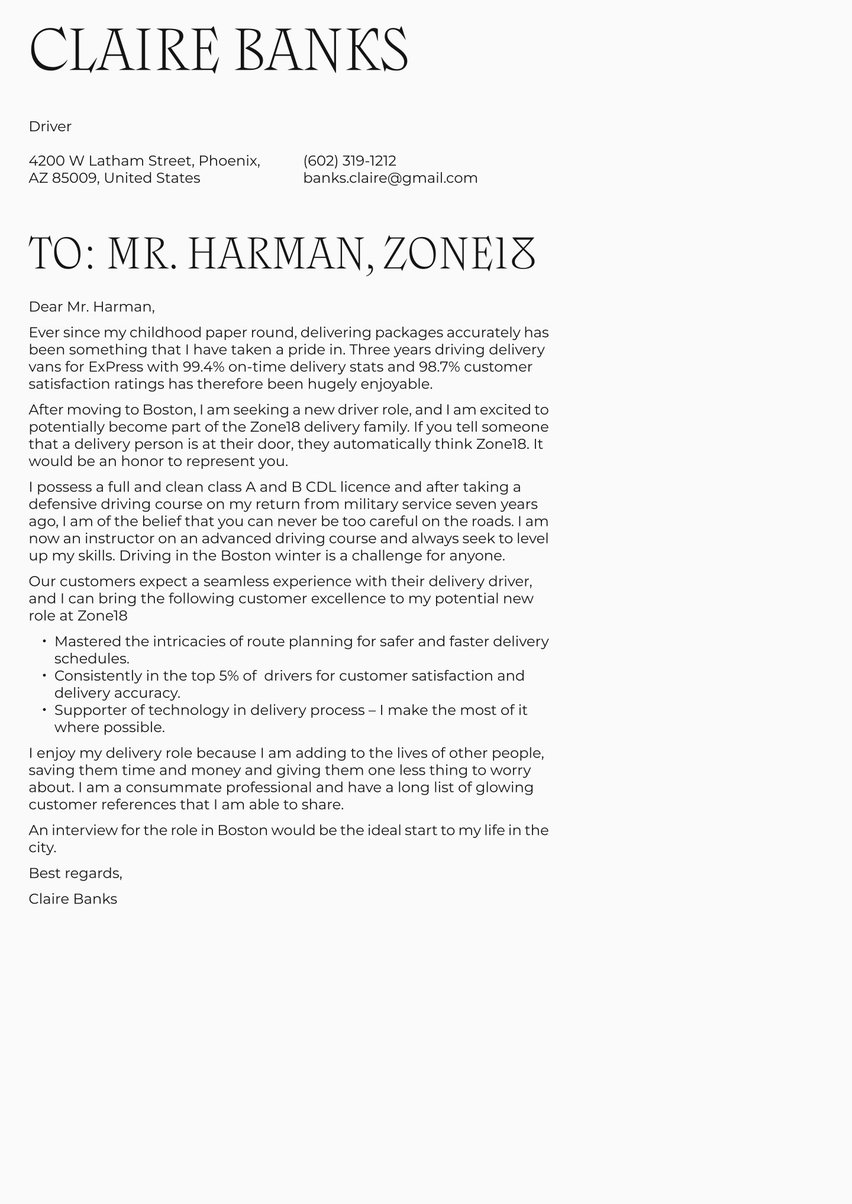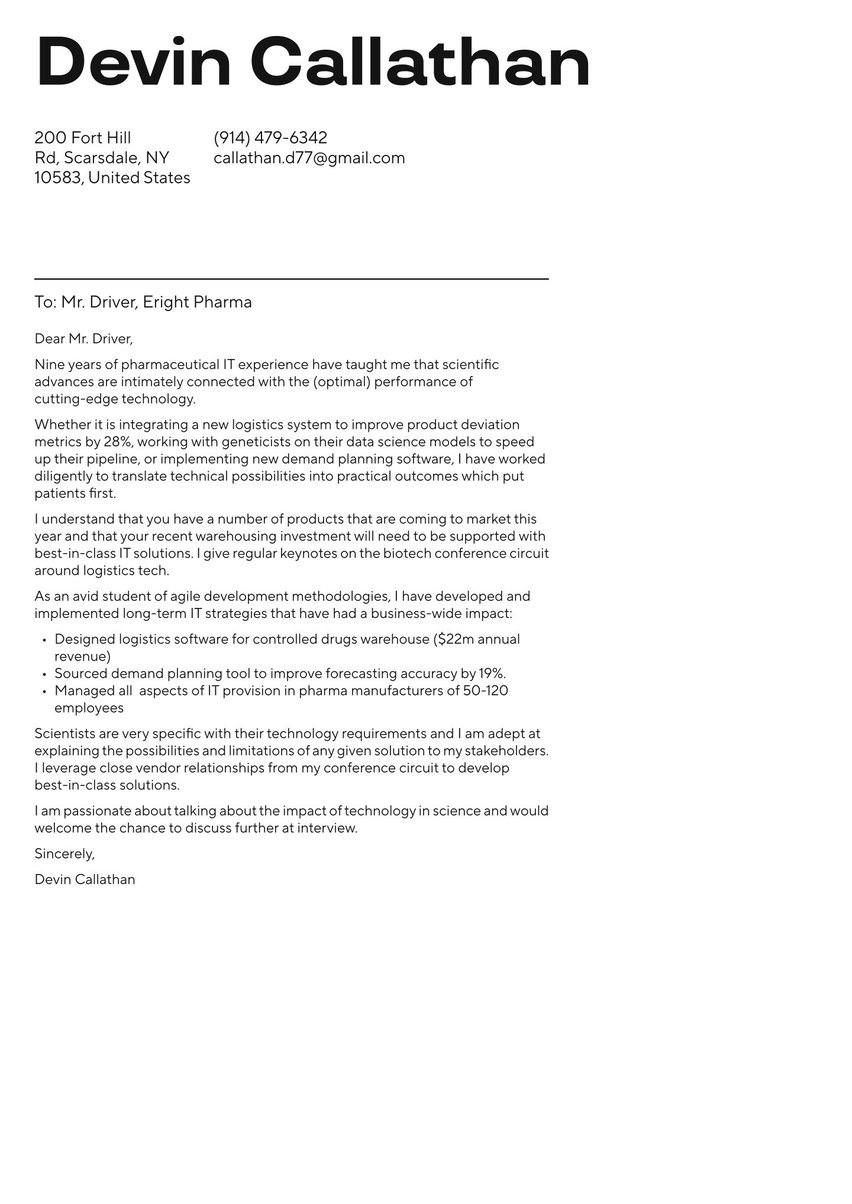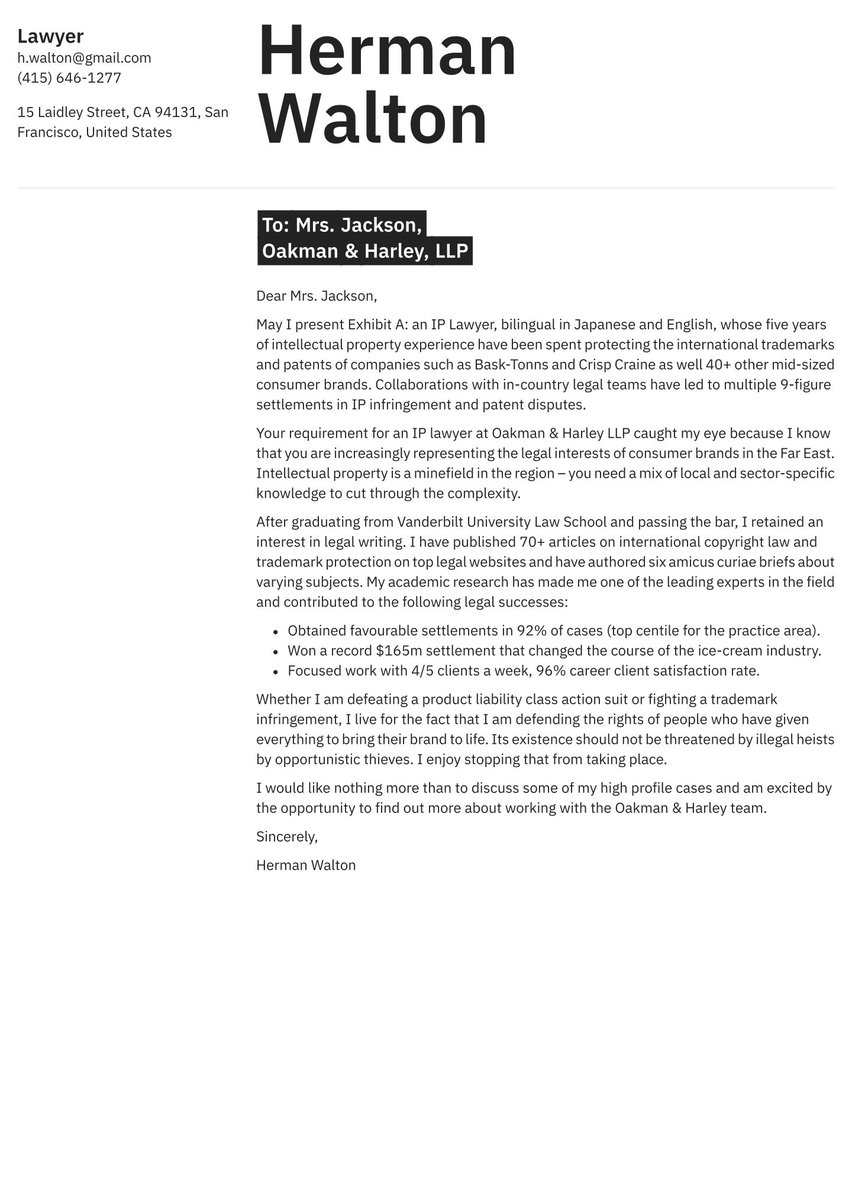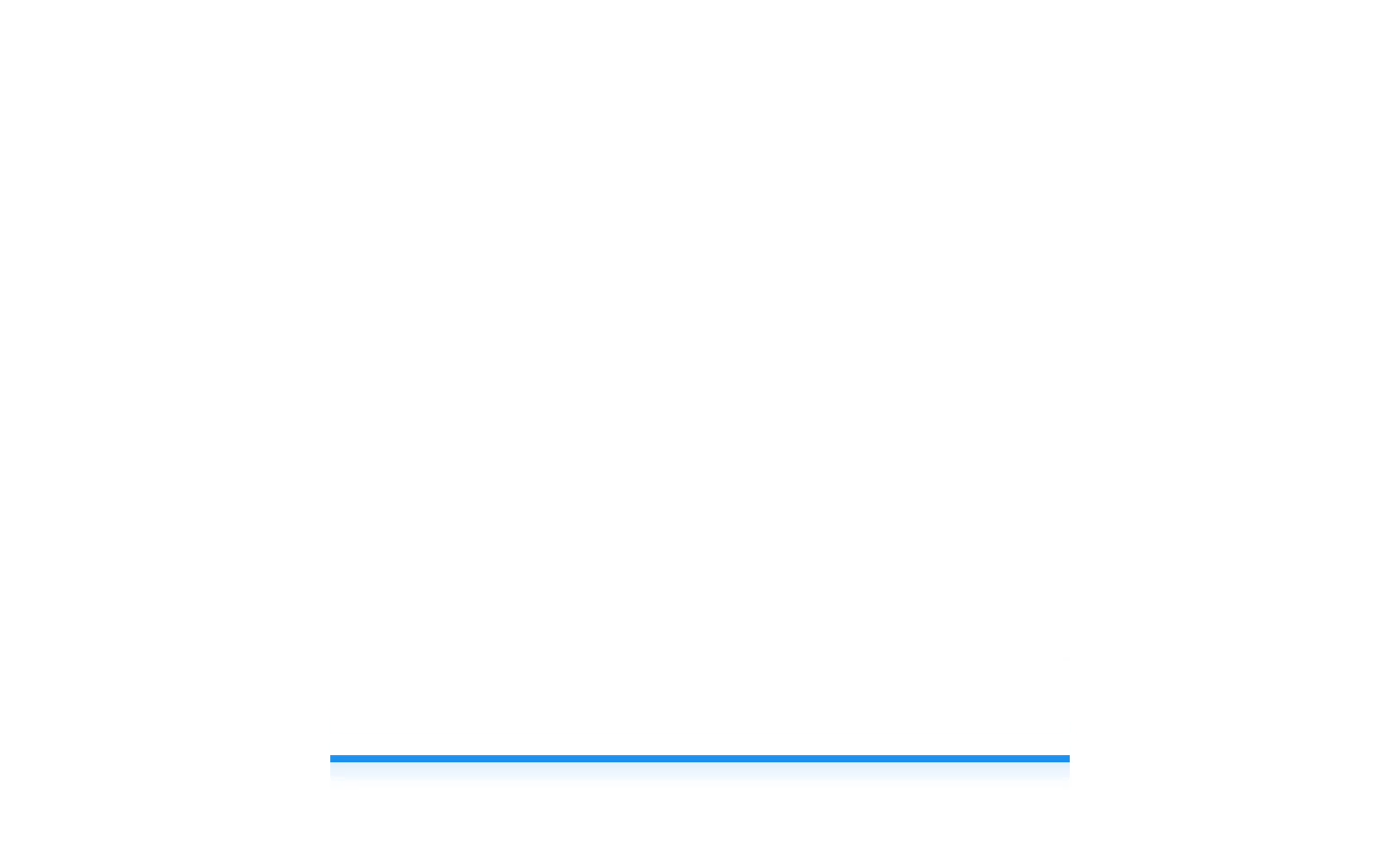Scholarships are not just about paying down tuition costs. Many of the organizations, clubs, and community members who offer them are interested in getting to know their scholarship recipients and following them through their educational journey.
While job applicants usually have the benefit of an accompanying resume, a student might not have the advantage of a lengthy work history. So, in this case, your cover letter often weighs more than your resume when it comes time to distribute the funds.
A scholarship may even lead to new connections, mentorship opportunities, internships and post-graduation job offers. In other words, a knock-out cover letter is worth the effort.
Scholarship full text-only cover letter example
Dear Professor Huddleston,
As I approach the dissertation year of my MA in Arabic at the UCLA Department of Near Eastern Languages and Cultures (NELC), I am writing to inquire about participating in the annual fellowship program. Much of my work has been based at the university, but the demands of my dissertation entail a significant amount of travel and expense.
I have been self-funding my current studies with part-time interpreting and translation work. I do not come from a privileged background and my parents give all that they can, but the costs of a dissertation that involves interpreting and observing at over 40 international conferences in one year are monumental. My dissertation on the “Cultural Considerations in English-Arabic Simultaneous Translation” seeks to provide a new perspective on what lies behind the language, but it cannot be written from inside a library.
I have already contributed much to my UCLA faculty, including curating the Persian section of the Language Materials Project and running events for the Near Eastern business community in Los Angeles. I worked on the Arabic section of a successful translation app and have published a number of well-reviewed academic papers on Arabic linguistics.
My career aim is to become an interpreter at the United Nations in New York. I have a month’s work experience lined up there at the end of this academic year and see it as the perfect start for my dissertation year. I want to bring the 300 million Arabic speakers that bit closer to the rest of the world. That can only happen with a thoughtful interpretation of both their words and their cultural background.
The fellowship would allow me access to the leading experts in the field and I would have an opportunity to practice my specialty at the most important events. I would welcome a meeting to discuss my application in more detail and hope for your assistance in this matter.
Sincerely,
Simon Travers

Sections of a scholarship cover letter
Before an organization will cut you a check, they want to be sure that you’re a motivated, engaged, and forward-thinking student who is worth the investment.
Structure the scholarship cover letter in such a way that leaves them with no doubt.
It is likely that you have a lot to say—choose the right messages in the right areas:
- Cover letter header. Include your contact details—full name, email, mobile, and maybe LinkedIn account. Including your pronouns is also a valid choice that many candidates are following.
- Greeting. A scholarship application is a request, usually of someone in a more senior position than yourself. You’ll want to take a respectful tone without seeming too formal, thus “Dear” is usually the best option.
- Introduction. Your introduction is the first chance for the scholarship committee members to get to know you. When applying for a scholarship, it’s important to get this initial paragraph right. You want to come across as respectful, but also enthusiastic and passionate about the field or program you’re entering.
- Body. Start off by explaining your goals or what you plan to do with the education or funding you receive. Remember, each sentence should add evidence to the argument that you are the best candidate for this financial investment.
- Conclusion. Ending on a positive note is important, but there’s one more thing you can do to seal the deal. A call to action invites the committee to contact you and shows that you are enthusiastic about their support.
- Signature. End the cover letter with a professional goodbye.
Every section of your cover letter should fit together to further your narrative. Tailor the cover letter to the nature of the scholarship on offer. Analyze the scholarship documents carefully. What is a fit for your situation?
Brevity is key. A one-page cover letter is more than enough for a scholarship application.
Need more inspiration? View our other related cover letter examples from this sector:
For more cover letter advice, check out our guide on how to write a cover letter.
After designing the header and addressing the hiring manager, it is time to start formulating your arguments. Why do you deserve the scholarship over everyone else?
Introduction of a scholarship cover letter
Thinking about how to start a cover letter is vital before you start writing. A charismatic opening that conveys character and personality is a good way to hit it off.
You might choose to start with a tasteful personal anecdote or a bit of background information, but just remember that most of the other candidates are also students, probably in the same field or major as you. Show off what makes you stand apart!
Don’t neglect to explain exactly the scholarship you are applying for if the organization offers more than one and tell why you are looking for funding.
Dear Mrs. Hardy,
I am writing to apply for the English Literature Scholarship to support my educational journey. As a dedicated student with a 3.9 GPA, I have excelled academically while also teaching creative writing classes at local schools. My internship at a publishing house last summer awoke my interest in the industry. This scholarship will significantly alleviate my financial burden, allowing me to focus more on my studies and contributions to the community.
Hi,
I need the money for the scholarship because I realize just how expensive university will be. I want to live my best life there and my studies will be affected if I am not able to balance them by having fun. I think that I will be a good investment because I will write good things about your department on social media.
Capture the reader’s attention with a snappy sentence that introduces yourself in an interesting and exciting way. Include facts and figures (including your GPA) where appropriate.
Dear Professor Huddleston,
As I approach the dissertation year of my MA in Arabic at the UCLA Department of Near Eastern Languages and Cultures (NELC), I am writing to inquire about participating in the annual fellowship program. Much of my work has been based at the university, but the demands of my dissertation entail a significant amount of travel and expense.
Scholarship cover letter body
In the body of your cover letter, consider the following template:
- Think about the value that you add—how will you contribute to the academic department?
- Mention how you have collaborated on academic projects
- Come across as meticulous, curious, and ambitious
- Be sure to include plenty of motivation—university work is tough
First body paragraph: Your suitability for the role (skills & experience)
Committees often appreciate personal stories, but they should be related to your career or educational goals. Keep your sincere stories/statements concise so that the reader doesn’t lose the message.
Make sure you are answering any questions asked in the application directions. Here are a few ideas that may work for you:
- Highlight your education. Sharing your education thus far is a great way of showing the committee your journey and commitment to success.
- Talk about your subject. Share some of the work that you have done in your field. Sharing a link to your academic portfolio may be useful.
- Aligned with the mission. Align yourself with the mission of the scholarship. They will be looking for certain qualities with their scholars.
Check out the professors that you may be working with. What work have they done recently. How do their interests align with yours? What can you say in the cover letter that may pique their imagination?
Second body paragraph(s): Alignment with the organization
Not every university works in the same way. Some are teaching-led, while others are more focused on research.
Make sure that your scholarship cover letter reflects the educational priorities of the specific university department.
I have been self-funding my current studies with part-time interpreting and translation work. I do not come from a privileged background and my parents give all that they can, but the costs of a dissertation that involves interpreting and observing at over 40 international conferences in one year are monumental. My dissertation on the “Cultural Considerations in English-Arabic Simultaneous Translation” seeks to provide a new perspective on what lies behind the language, but it cannot be written from inside a library.
I have already contributed much to my UCLA faculty, including curating the Persian section of the Language Materials Project and running events for the Near Eastern business community in Los Angeles. I worked on the Arabic section of a successful translation app and have published a number of well-reviewed academic papers on Arabic linguistics.
My career aim is to become an interpreter at the United Nations in New York. I have a month’s work experience lined up there at the end of this academic year and see it as the perfect start for my dissertation year. I want to bring the 300 million Arabic speakers that bit closer to the rest of the world. That can only happen with a thoughtful interpretation of both their words and their cultural background.
Call to action & conclusion: Finish off strong
Sum up your cover letter with a positive closing paragraph. Ending on a positive note is important, but there’s one more thing you can do to seal the deal.
A call to action invites the committee to contact you and shows that you are enthusiastic about their support. Be hopeful but not presumptuous—you never quite know who you are up against.
The fellowship would allow me access to the leading experts in the field and I would have an opportunity to practice my specialty at the most important events. I would welcome a meeting to discuss my application in more detail and hope for your assistance in this matter.
Sincerely,
Simon Travers
Conclude by signing off with your name. Make sure that you include first name and surname. Don’t risk ruining your chances by being too casual.
How to write a scholarship cover letter with no experience
Some students are afraid to apply for scholarships because they don’t believe they are impressive enough to beat out the other candidates. While it’s true that some scholarships can be very competitive (about 12 percent of all undergrads depend on this type of aid), there’s plenty of options that only require you to be yourself.
Consider these points:
- Highlight study skills. While you might not have secured a scholarship before, communication and interpersonal skills are always useful for effective study.
- Showcase accuracy and attention to detail. If you are a fast learner, you will cope with working in the demands of a leading academic department.
- Highlight achievements. If you are an academic high achiever, getting that first scholarship is eminently possible.
These points will help balance out the lack of direct experience in your cover letter.
Key takeaways
A scholarship cover letter highlights your relevant skills and experiences. A convincing cover letter can even be more important than your resume in this case.
Try our cover letter builder to experiment with the look for the letter. Keep it professional— don’t go overboard with colors and flashy designs.


